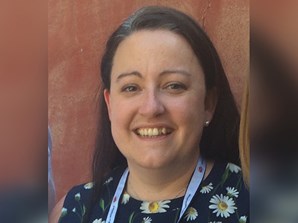
Charlotte Pawlyn
Charlotte was motivated to embark on a PhD at the ICR through her experiences as an Academic Clinical Fellow at The Royal Marsden NHS Foundation Trust.
“I was lucky enough to meet some great mentors who really inspired me – showing how enjoyable and rewarding clinical and laboratory research can be,” she says. “The ICR has a great history of successfully supporting academic clinicians – and its unique alliance with the hospital enables true bench to bedside research, which I felt was really important for my project.”
Her PhD focused on the role of epigenetics – heritable changes that aren’t encoded in the DNA sequence – in a type of blood cancer called myeloma. By analysing gene sequencing and expression data and clinical information from thousands of patients, she identified mutations in epigenetic modifiers and changes in gene expression linked with survival and then investigated their importance in laboratory experiments.
“Increasing awareness of the presence of relevant mutations and expression changes of critical genes in myeloma paves the way for trials of epigenetic targeted treatment strategies in subgroups of patients,” Charlotte explains.
Charlotte was awarded several prestigious prizes during her PhD, including The Women in Cancer Research Scholar Award at the annual American Association for Cancer Research (AACR) conference in 2015.
Reflecting on her time as a PhD student at the ICR, she says: “The diversity of professionals who work at the ICR is one of its greatest strengths. Being surrounded by people who have a real drive to progress research directly for patient benefit is inspiring.”
After finishing her PhD, Charlotte returned to full-time clinical training. After completing her exams for Fellowship of the Royal College of Pathologists, she was awarded an NIHR Clinical Lectureship position that has enabled her to return to the ICR.
“This post is giving me the opportunity to combine clinical work with my laboratory research, which is of immense value while I continue to build my independent research career,” Charlotte says.
Charlotte feels her time at the ICR has been incredibly formative for her career to date and continues to provide an excellent environment to develop her independent translational research career, as she illustrates:
“Ultimately, I want to be an academic clinician with a dual role in the clinic and as an internationally recognised research team leader carrying out drug development and translational research in this exciting field, with the aim of improving patient care and outcomes.”